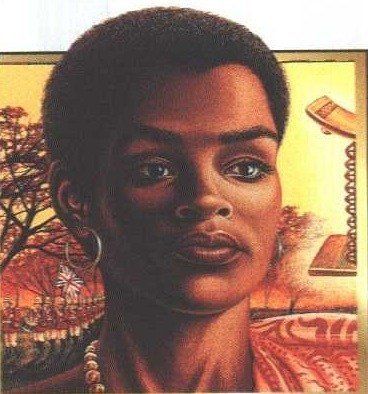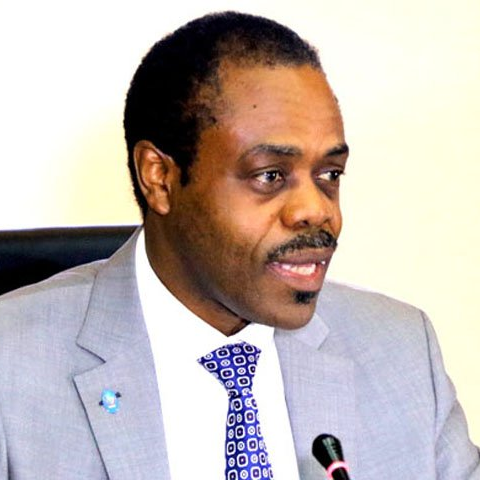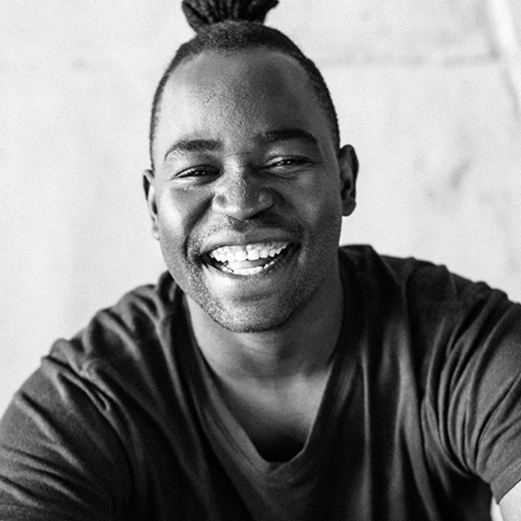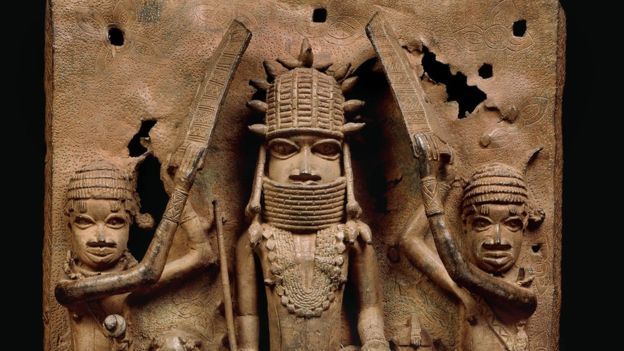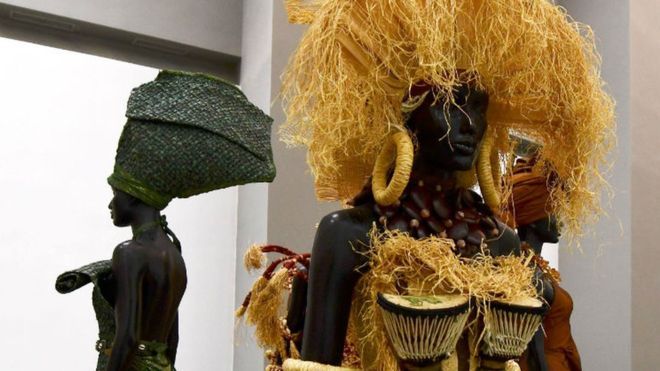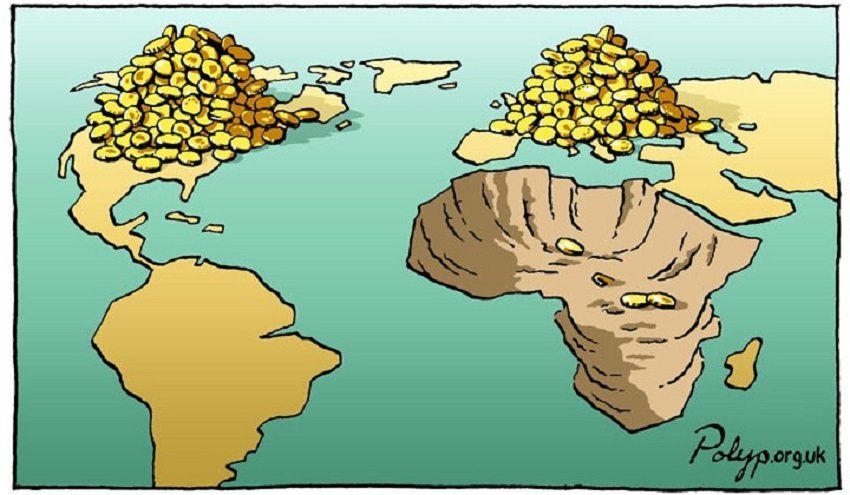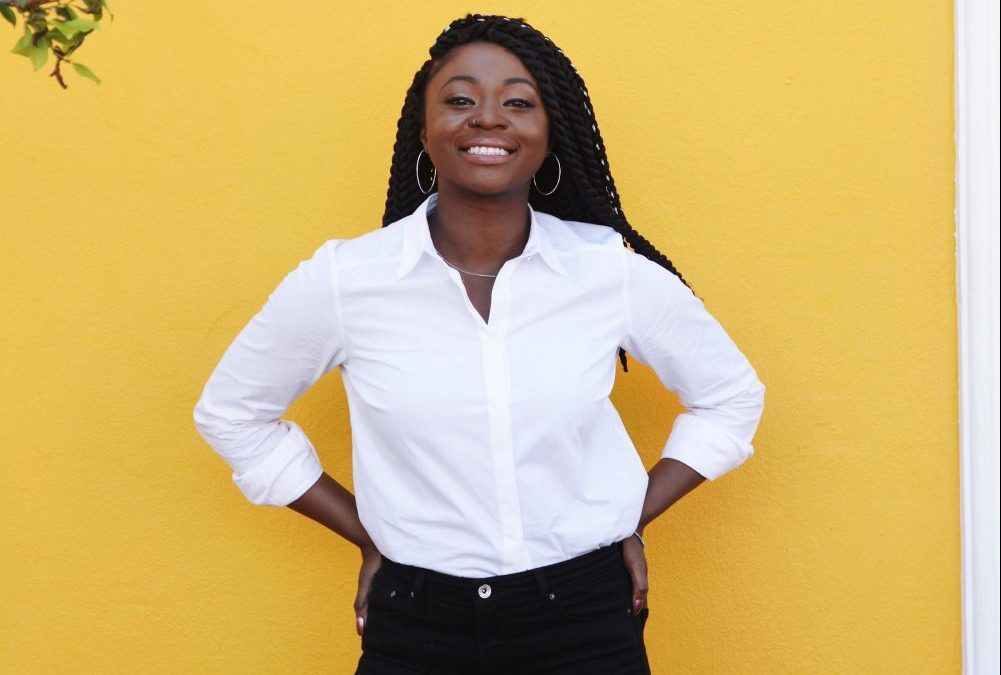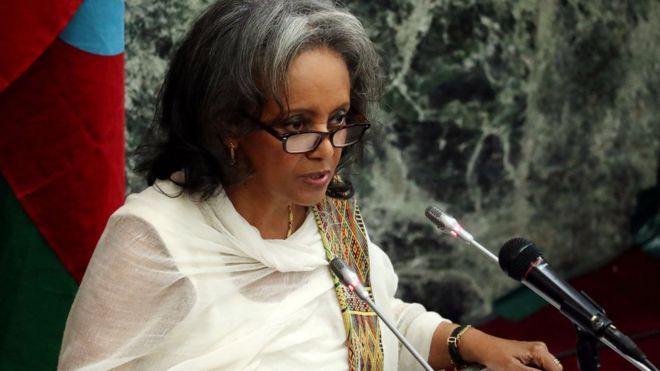The town where hip hop is healing South Africa’s broken youth
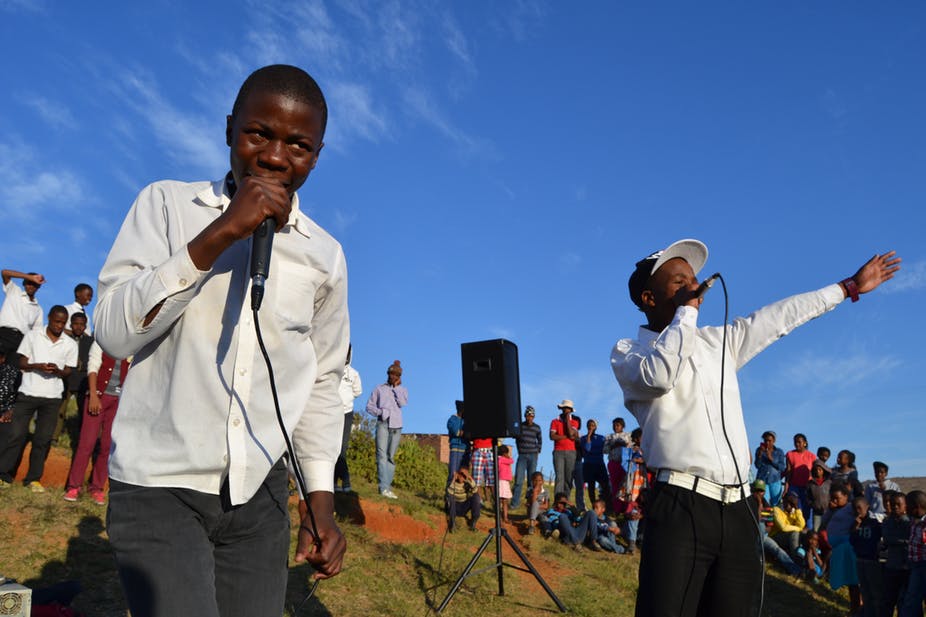
A large body of research shows that in South Africa’s black townships, a youth masculinity dominates, probably best captured by the gangsta hip-hop term “ swagger ”. It involves a highly sexualised, aggressive manner, sporting the latest consumer goods, and not being averse to violence, alcohol abuse and drugs – basically how hip-hop functions universally. What is less commonly known is that there is an “underground” hip-hop movement in South Africa promoting an alternative lifestyle.
I spent a year in 2014 hanging out with hip-hop artists in the townships of Grahamstown in the Eastern Cape province. Most of them have been performing since the mid-2000s.
“We don’t do swagger,” says local hip-hop artist Dezz. He detests the “ izikhothane ” subculture in which young men parade with consumer goods and then destroy these. While it gives them a certain status, it does not value “people with nothing”, he says.
In Grahamstown they rap about these people with nothing, praising their resilience for surviving hunger, crime and being looked down upon by others.
Spreading the message of black consciousness
There is something of a religious zeal to these hip-hop artists. Posters at their events make it clear that no alcohol is allowed. Their songs celebrate family and the “narrow path” of morality. Many are vegans. Their central message, however, is not church, but black consciousness. They invoke struggle heroes like Steve Biko and Chris Hani in their lyrics.
Hip-hop artist XNasty, considered the father of hip-hop in Grahamstown, has been promoting Biko’s message for many years. Society is still broken due to apartheid and its legacy of racism and economic oppression, he says. It’s a psychic wound that has festered since apartheid times and has been transferred from parents to children. Parents in many poor townships have been told for so many years that they are “nothing” that this sense of uselessness has been internalised in a sense of nihilism, XNasty explains.
Hip-hop artist XNasty, considered the father of hip-hop in Grahamstown, has been promoting Biko’s message for many years. Society is still broken due to apartheid and its legacy of racism and economic oppression, he says. It’s a psychic wound that has festered since apartheid times and has been transferred from parents to children. Parents in many poor townships have been told for so many years that they are “nothing” that this sense of uselessness has been internalised in a sense of nihilism, XNasty explains.
The hip-hop artists explain this negativity in terms of black consciousness – people here are broken, and they don’t realise how they are destroying each other. They suffer a feeling of constant judgment by the rest of society, and so they judge others.
‘Re-animating the human’
In response, hip-hop in Grahamstown refuses to judge, and hangs onto hope. Local rapper Azlan raps about gangsters who return to prison, and implores people to see them as human. “People need to try and imagine how we can help that gangster to change, so he can be a human being, like you and me,” he argues.
“If you are not working you are useless,” says rapper Ithalalenyeni. Others describe how you are taunted to “go back to the village” if you wear unfashionable clothes or do not have a sophisticated mobile phone.
The politics of hip-hop here is about recognising humanity in a space of deep dehumanisation. It invokes public intellectual Achille Mbembe ’s call to “ re-animate the human ” in South Africa. South Africans carry the dehumanisation of apartheid and are now confronted with the double dehumanisation of neo-liberalism , according to Mbembe.
Sociologist Michèle Lamont argues that the symbolic boundaries that divide a society into “people like us” and those that are considered inferior are part of a nation’s culture. In France, with its long history of the revolution, Catholicism and socialism, symbolic boundaries are less harsh than in the US, and people are more inclined to think of the working class as “people like us”, she argues.
In South Africa, slavery, colonialism and apartheid have probably resulted in some of the harshest symbolic boundaries in the world, questioning black people’s basic humanity for centuries. Hip-hop here is about overcoming these persistent symbolic boundaries by celebrating the humanity of ordinary township residents.
Hip-hop artists rediscover obscure words in isiXhosa , read books on history and politics, and work these into their lyrics. They develop rich cultural metaphors celebrating traditions. They reclaim a black intellectual culture.
These hip-hop artists also spend hours mastering complex media software. They write songs about overcoming hardship. They recruit new members and keep these young teens away from crime. They dream of success, but also of transforming the communities in which they live.
Building empowered communities
The academic literature exploring the resilience of young people is, to my mind, too focused on helping individuals do better than expected in precarious, dangerous environments. It does not focus on those young people who are trying to do more than simply survive – those who are also trying to change their environments.
Inspired by Biko, the hip-hop artists in my study are doing exactly that. They are not waiting for politicians, they say, but trying to do things for themselves. The annual Fingo Festival that happens during the National Arts Festival in Grahamstown is just one of the ways they do this.
XNasty and a few other local musicians decided they were not content simply to join in the criticism that the National Arts Festival has too small a presence in the townships and does not offer a platform for local artists. Instead, they did something about it. Their dreams and hard work in fund-raising paid off. Since 2011 the Fingo Festival offers a week-long programme combining local hip-hop acts, National Arts Festival shows and in-depth community discussions.
For these young people, Biko’s central message is that black communities should claim back the right to re-imagine their own future – and then start doing exactly that.
SOURCE: http://ow.ly/lBfp30n3Ms9

